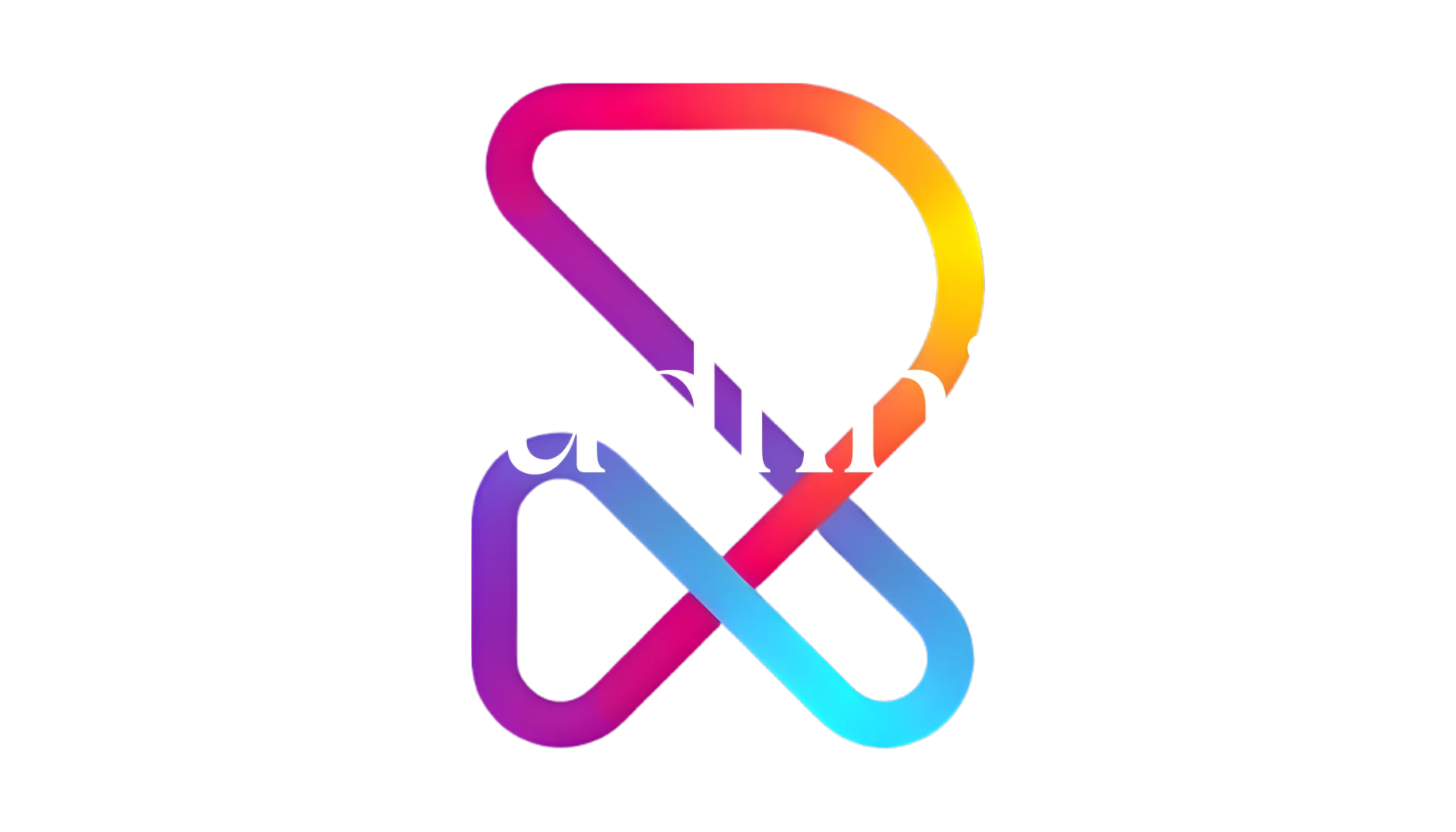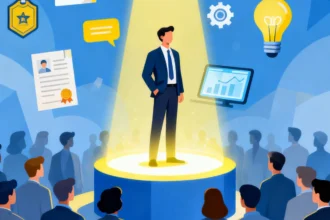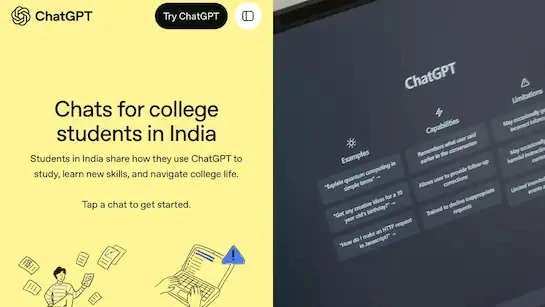Estimated Reading Time: 25-30 minutes (5,472 words)
Introduction
In India’s hyper-competitive education landscape — where millions prepare each year for exams like UPSC, NEET, JEE, CAT, and state boards — students are constantly looking for smarter ways to learn and stay ahead. Enter ChatGPT, the revolutionary generative AI tool from OpenAI, which has rapidly become a digital study partner for many. Whether it’s simplifying tough concepts, generating sample answers, helping with essay writing, or revising key topics, ChatGPT is transforming how Indian students approach exams — blending technology, curiosity, and efficiency in one click.
Across schools, colleges, and coaching centers, a growing number of learners now use ChatGPT for concept clarification, mock test creation, and even personalized study schedules. College students use it to summarize research papers or generate project outlines; NEET aspirants use it to quiz themselves on biology topics; and UPSC candidates rely on it for current affairs briefs and structured writing help. This shift reflects a broader movement — AI literacy becoming a mainstream skill in Indian education, alongside traditional rote learning.
But this transformation also raises important questions. How much dependence on AI is too much? Are students truly learning, or just generating answers? What are the ethical and academic integrity concerns involved? In this article, we’ll explore how Indian students are using ChatGPT for exams, backed by real-world usage data and case studies from Indian colleges. We’ll also discuss practical ways to harness ChatGPT responsibly — not just to save time, but to enhance understanding, improve productivity, and future-proof learning in the age of AI.

Key Facts & Statistics (2025 Snapshot)
AI-powered learning has officially entered Indian classrooms — and students are driving the change.
Here are the latest verified stats and insights on how Indian learners are using ChatGPT for exam preparation, based on real-world data and research from OpenAI, Economic Times, and academic studies.
- 🧠 Over 50 real-world student use-cases were showcased by OpenAI (2025) under its “Chats for Students in India” campaign. These include examples like creating study notes, solving NEET-style questions, revising history chapters, and generating mock UPSC essay prompts — showing ChatGPT’s growing role as a study companion across education levels.
(Source: OpenAI Blog, 2025) - 👩🎓 Nearly 48–52% of ChatGPT’s active users in India are below 24 years of age, according to The Economic Times (2025). Most report using it for exam prep, assignments, and conceptual explanations, particularly in Tier 1 & Tier 2 college hubs such as Delhi, Bengaluru, and Pune.
(Source: Economic Times Education Survey, 2025) - 📉 A 2024 arXiv research study found that students who excessively relied on generative AI scored on average 6.71 points lower (out of 100) than those who used it moderately or for conceptual assistance. This finding highlights the risk of over-dependence and the need for critical thinking while using AI tools.
(Source: arXiv.org – “Generative AI Use and Student Performance,” 2024) - 🧾 A 2025 Kaggle survey of 496 Indian college students revealed that ChatGPT was the most used AI study tool (73%), followed by GitHub Copilot (14%) and Google Gemini (9%). Most respondents said AI tools improved productivity and confidence but raised concerns about originality and plagiarism.
(Source: Kaggle Dataset – “AI Tools Usage by Students India 2025”) - 🩺 A peer-reviewed study published in PubMed Central (PMC) found that ChatGPT achieved a 66.7% score in an Indian undergraduate community medicine exam, demonstrating its potential to meet university-level standards — though not yet fully mastering complex analytical questions.
(Source: PMC – “Performance of ChatGPT in Undergraduate Medical Exams,” 2024)
🧩 Quick Insights
- AI literacy is becoming a must-have skill in Indian colleges by 2025.
- Students are blending ChatGPT with traditional study methods, using it for quick clarifications and revision.
- Excessive AI dependence can lower conceptual understanding — moderation is key.
- Universities and educators are now drafting guidelines on responsible AI use in assessments.
Why ChatGPT Is Gaining Traction Among Indian Students
India’s education system is one of the most competitive in the world — with over 30 million students appearing for board exams, and more than 3 million attempting competitive entrance tests like JEE, NEET, UPSC, and CAT each year (as per Ministry of Education, 2024). This intense academic pressure drives students to look for smarter, more efficient ways to study — and ChatGPT fits that need perfectly. It offers instant explanations, interactive Q&A sessions, and 24/7 accessibility, making it a personal tutor on demand for millions of Indian learners.
🔹 1. High Pressure to Perform
Academic competition in India remains fierce — parents, schools, and peer expectations often create immense stress around results. ChatGPT helps ease this by offering personalized study assistance: it breaks down complex topics, creates quick revision notes, and simulates exam-style questions. For instance, JEE aspirants use it to generate step-by-step math problem solutions, while humanities students use it for essay outlines and current affairs summaries. The speed and adaptability of ChatGPT make it an ideal companion for last-minute preparation and concept reinforcement.
🔹 2. Widespread Smartphone & Internet Access
India now has over 750 million smartphone users and 700+ million internet connections, according to TRAI (2025). Affordable data plans and increased digital literacy have democratized access to AI-powered tools. Whether in Tier-1 metros or smaller towns, students can now use ChatGPT directly through their phones, making it one of the most inclusive learning technologies in India’s digital education revolution.
🔹 3. Language & Comprehension Support
A major barrier for Indian students, especially in rural and semi-urban areas, has been language comprehension and conceptual clarity. ChatGPT bridges this gap effectively by allowing learners to translate content, simplify technical terms, and even generate bilingual explanations (e.g., English–Hindi or English–Tamil). For example, a student from Bihar can ask, “Explain photosynthesis in simple Hindi” and get a tailored answer instantly — something most textbooks don’t offer. This makes AI a powerful equalizer in education, helping multilingual learners better grasp complex subjects.
🔹 4. Growing EdTech Ecosystem
India’s EdTech industry, valued at over USD 10.2 billion in 2025 (NASSCOM), has normalized the use of digital tools for studying. Post-COVID, hybrid and self-paced learning models have become mainstream — students already comfortable with apps like BYJU’S, Unacademy, and Coursera find ChatGPT a natural extension of their digital study habits. Many even combine ChatGPT with note-taking apps like Notion or quiz generators like Quizlet, creating personalized AI-assisted learning environments.
🔹 5. Rise of Prompt Engineering Communities
A unique trend in India is the growth of student-led prompt engineering communities on Telegram, Reddit, and YouTube. Students share optimized “study prompts” — such as “Create a NEET biology quiz with answers in 10 questions” or “Explain Mughal history in 5 key points for Class 12” — helping others get maximum value from ChatGPT. This peer-driven innovation culture has amplified usage and made Indian learners some of the most creative AI users globally.
⚡ Key Insight
ChatGPT’s rise in India isn’t accidental — it’s the result of digital access, exam stress, and the hunger for personalized learning. For a generation raised on smartphones and instant answers, AI tutors like ChatGPT are becoming the new normal in academic life.
Top Use-Cases: How Indian Students Are Using ChatGPT for Exams
From personalized study planners to essay polishing and language support, ChatGPT has quietly become the all-in-one digital assistant for Indian students. Whether they’re studying for CBSE boards, NEET, JEE, or college semester exams, learners use ChatGPT to save time, clarify doubts, and simulate real exam environments. Below are the top five ways students in India are leveraging ChatGPT effectively.
📅 1. Study Schedules & Revision Plans
Indian students often face multiple exams within short time frames, making time management a key success factor. ChatGPT helps students design customized study schedules based on syllabus weightage, exam dates, subject difficulty, and available hours.
Example Prompt:
“I have my board exams in 30 days. Create a daily study plan for Math, Science, and English with 2-hour revision slots, 1 mock test per week, and 1 rest day.”
ChatGPT can generate structured timetables with built-in revision cycles, break intervals, and practice test reminders. Some students even sync these plans with Google Calendar or Notion for real-time tracking.
Pro Tip: Use ChatGPT’s plan as a base framework, then customize it based on your energy levels, subject strengths, and time of day when you study best.
(Source: OpenAI Student Use Report 2025; Mint Education Feature 2025)
📘 2. Concept Simplification & Flashcards
With heavy syllabi and complex topics, students often struggle to retain dense information. ChatGPT simplifies long chapters into easy-to-digest explanations, analogies, and summary tables.
For example, students can upload a topic like “Thermodynamics” or “The Mughal Empire” and prompt ChatGPT to create flashcards, mind maps, or short summaries.
Example Prompts:
“Explain the laws of motion like you’re Archimedes.”
“Summarize Class 12 Biology Chapter 6 as 10 flashcards.”
These AI-generated flashcards are particularly helpful for NEET, UPSC, and CBSE learners who need spaced repetition for better retention. The feature of “role-play explanations” (asking ChatGPT to act as a teacher, scientist, or examiner) makes learning interactive and memorable.
(Source: Times of India Education Desk, 2024; ChatGPT Learning Case Studies)
🧩 3. Mock Tests & Practice Quizzes
Another common use-case is mock exam simulation. Students ask ChatGPT to create subject-specific quizzes with explanations and adaptive feedback — ideal for self-assessment.
Example Prompt:
“Create a 10-question multiple-choice quiz for Operating Systems. Wait for my answer after each question, then tell me if I’m right and explain.”
This interactive setup helps simulate real exam pressure. Many students report that AI-based quizzes help reduce anxiety and improve time management during real tests. Some advanced users even train ChatGPT to assign scores or difficulty levels progressively, turning it into a dynamic testing partner.
Pro Tip: Treat the quiz as real — time yourself, avoid peeking at answers, and review your weak areas afterward for maximum benefit.
(Source: Mint Education & Skills Survey, 2025)
📝 4. Essay Writing, Answer Drafting & Polishing
ChatGPT also assists students in structuring essays, polishing grammar, and improving clarity. Indian college students commonly use it for semester papers, board exam answers, and UPSC-style descriptive writing.
Use-Case Example:
A Delhi University student used ChatGPT to structure a sociology essay into introduction-body-conclusion format and then rewrote it in formal academic tone using ChatGPT’s language refinement tools.
Benefit:
It teaches students how to structure logical, cohesive responses and refine tone for academic writing.
Risk:
Over-reliance can weaken critical thinking, originality, and writing independence. Always rewrite AI-generated drafts in your own words, and cite AI assistance if used in formal submissions.
(Source: Economic Times Education Tech Report 2025; AICTE Ethical AI Guidelines, 2024)
🌐 5. Language Translation & Multilingual Support
India’s education system is multilingual, and many students face challenges when learning in English-medium institutions. ChatGPT helps bridge this gap through translation, rephrasing, and bilingual note generation.
Example Prompt:
“Translate this physics paragraph into Hindi and simplify it for a 10th grader.”
“Explain democracy in English and Tamil with simple examples.”
ChatGPT can explain the same concept in multiple regional languages like Hindi, Tamil, Bengali, or Kannada — helping rural and Tier-2 city students understand complex topics without losing context.
Advantage:
This feature is a game-changer for inclusivity — enabling students from non-English backgrounds to learn confidently and participate in digital education equally.
(Source: UNESCO AI Literacy Report, 2024; EdTechReview India 2025)
⚡ Key Takeaway
From personalized study plans to multilingual explanations, ChatGPT has evolved into a multi-functional study companion for Indian students. When used wisely — as a support tool, not a substitute — it can significantly enhance learning outcomes and academic confidence.
Benefits & Opportunities for Students
The rise of AI tools like ChatGPT has brought a new wave of efficiency and personalization to how Indian students study, revise, and manage time. Beyond just answering questions, ChatGPT enables a smarter, more strategic approach to exam preparation. Here’s how students are turning it into a genuine academic advantage.
⚡ 1. Faster Content Ingestion & Better Retention
Students often struggle with dense textbooks and long notes — especially in subjects like Physics, History, or Economics. ChatGPT helps by breaking down complex concepts into simpler, bite-sized explanations, summarizing chapters, and generating quick revision notes or mind maps.
By turning difficult topics into digestible formats (summaries, tables, or examples), it speeds up content absorption and boosts understanding. This approach is particularly useful during last-minute revisions before board exams or competitive tests like JEE and NEET.
Example:
“Summarize Class 12 Chemistry Chapter 3 into key points for quick revision.”
(Result: Concise bullet notes + memory-friendly explanations)
🎯 2. Personalized Learning Experience
Unlike generic study material, ChatGPT offers customized responses based on each student’s needs. Learners can prompt it to focus on weak subjects, adapt the difficulty level, or generate examples from specific textbooks or syllabi.
This makes learning more adaptive and self-directed — ideal for students juggling multiple subjects or exams. A NEET aspirant can ask for detailed biology explanations, while an English literature student can request poetry analysis at the same time, both tailored to their syllabus.
Key Benefit: It aligns with your personal pace, preferred style, and academic goals, turning one-size-fits-all education into an individualized experience.
(Source: OpenAI India Student Survey 2025)
🧠 3. Active Learning & Engagement
Traditional studying can become monotonous — reading and memorizing without interaction. ChatGPT transforms that process into active learning by offering quizzes, role-plays, real-time feedback, and simulations.
For example, students can ask ChatGPT to quiz them, debate topics, or explain concepts through creative analogies. This hands-on approach deepens understanding and builds confidence.
Example Prompts:
“Quiz me on Indian Polity — 10 questions, one at a time.”
“Pretend to be my economics teacher and explain fiscal deficit like I’m 12.”
These methods mimic peer-to-peer tutoring and interactive classroom experiences, making study sessions more engaging and productive.
💻 4. Skill Development for the Future
Using ChatGPT effectively goes beyond academics — it develops future-ready skills such as:
- Digital literacy (navigating AI tools safely and efficiently)
- Prompt engineering (framing precise questions to get better outputs)
- Critical thinking (evaluating and refining AI-generated information)
- Communication clarity (learning to write structured, logical prompts)
These are valuable 21st-century skills increasingly sought after in tech-driven industries. Students who learn to use AI tools smartly today are better prepared for careers in data, design, content, and digital strategy.
⏰ 5. Improved Time-Management & Study Discipline
AI-generated schedules and progress trackers help students structure their study hours efficiently — ensuring balance between work, revision, and rest. ChatGPT can design smart timetables, track mock-test performance, and even recommend when to revise older topics.
This brings clarity and consistency to a student’s daily routine — critical during high-pressure exam seasons. With proper planning and realistic pacing, burnout can be minimized, and productivity enhanced.
Pro Tip:
Use ChatGPT-generated plans as a foundation, then adjust based on your personal energy levels and concentration patterns.
(Source: Mint Education Insights, 2025)
💡 In Summary
ChatGPT empowers Indian students not just to study faster — but to study smarter. It bridges knowledge gaps, promotes active learning, improves digital literacy, and lays the foundation for AI-driven career skills. Used responsibly, it’s more than a chatbot — it’s a personalized academic coach that grows with the learner.
Risks & Academic Integrity Concerns
While ChatGPT offers enormous learning advantages, its misuse can undermine both academic integrity and actual understanding. A growing body of evidence suggests that excessive dependence on AI tools can lead to weaker performance and critical thinking gaps.
According to a 2024 arXiv research paper, students who frequently used generative AI tools like ChatGPT scored, on average, 6.7 points lower out of 100 compared to peers who used traditional study methods. This suggests that while AI can accelerate learning, replacing effort with automation may harm comprehension and memory retention in the long run. Similar findings were echoed in a Harvard Education Review analysis, which found that AI-heavy studying led to “surface-level familiarity” rather than “deep conceptual mastery.”
🧩 Global Academic Warnings
Across the world, universities and education boards are taking note. Institutions such as Cambridge University, Stanford, and IIT Bombay have started drafting or revising academic integrity guidelines to address AI-aided plagiarism, copy-paste answers, and essay generation.
According to The Guardian (2024), several global universities have redesigned assessments to focus more on oral exams, in-class essays, and practical demonstrations — making it harder for students to rely solely on AI-generated responses.
These changes reflect a simple truth: AI can enhance learning, but it must not replace independent thinking or originality. Tools like ChatGPT should serve as a “study aide” — not a “solver.”
🇮🇳 Indian Context & Policy Environment
In India, educational institutions are also catching up. Universities like Delhi University, IITs, and Christ University have started discussing AI-use policies, including the use of plagiarism detectors and AI-content recognition systems (like Turnitin’s AI writing detector). The University Grants Commission (UGC) has hinted that institutions may soon issue AI ethics codes for students and teachers.
This means every student should be aware of — and follow — their institution’s AI-use policy before submitting assignments or projects generated using tools like ChatGPT, Copilot, or Gemini. Responsible usage is key to avoiding disciplinary actions, grade deductions, or even suspension.
🚨 ⚠️ Warning Box: Academic Integrity Reminder
❗ Never submit AI-generated content as your own.
Always review, fact-check, and rewrite outputs before submission. Treat ChatGPT as a learning partner, not a shortcut.
Submitting unedited AI content can:
- Trigger academic misconduct penalties under university rules.
- Reduce learning outcomes and weaken understanding.
- Harm your long-term skills in research, writing, and reasoning.
By maintaining transparency and using AI ethically, students can enjoy the advantages of automation without compromising trust or credibility.
Key Takeaway:
Responsible AI use in education is about balance. Leverage ChatGPT to learn faster — but never to bypass the learning process itself. Academic honesty remains the foundation of every successful career.
Case Study: Indian College Students and ChatGPT Prompts
- In October 2025, OpenAI launched “Chats for Students in India,” sharing 56 actual prompts from Indian students at institutions like IIT Madras, Manipal Academy of Higher Education (MAHE) and others. India Today+1
- Prompt examples:
- Implication: Indian students are using ChatGPT not just for copying answers, but for structuring revision and personalised study — a positive shift.
- But this also indicates mainstream usage: students may assume AI-use is normal — which raises integrity questions.

Step-by-Step Guide: How to Use ChatGPT Responsibly for Exams
ChatGPT can be a powerful study ally — but only if you use it with clear intent, structure, and self-discipline.
This section walks you through a responsible, 6-step approach that turns AI from a distraction into a smart learning assistant that improves comprehension, not just grades.
🪶 Step 1 – Define Your Objective Clearly
Before you open ChatGPT, pause and think:
“What exactly do I want help with?”
This clarity helps the AI deliver accurate, relevant results. Instead of vague queries like “Help me study for exams,” ask focused questions such as:
- “I need a 14-day Physics revision plan based on CBSE Class 12 syllabus.”
- “Summarize key theorems from Engineering Mathematics Unit 3.”
- “Create flashcards for Indian Constitution Articles.”
Provide Context:
Always mention:
- Your syllabus or board (CBSE, ICSE, JEE, NEET, university course)
- Exam format (MCQ, long-answer, oral test, etc.)
- Your strengths and weak areas
✅ Pro Tip: The more specific your prompt, the more tailored and accurate your study output will be.
💡 Step 2 – Craft Smart Prompts (The Secret Weapon)
Prompt quality = Output quality. Writing clear, structured prompts is the core skill behind effective AI learning.
Example of a weak prompt:
“Make a study plan for me.”
Example of a smart prompt:
“Here is my B.Tech Semester 3 syllabus. Create a 21-day study plan with daily topics, 2-hour study blocks, mock test days every Sunday, and review questions after each chapter.”
Advanced Techniques:
- Ask for interaction: “Quiz me on these topics one by one.”
- Request visual aids: “Generate a table comparing photosynthesis and respiration.”
- Set constraints: “Explain this concept in under 100 words for a quick revision note.”
💬 Pro Tip: Treat ChatGPT like a tutor — give it instructions, feedback, and ask for follow-ups.
🧱 Step 3 – Use Output as a Scaffold — Adapt and Personalise
AI responses are a starting framework, not a final product.
Review every output critically:
- Edit the schedule based on your available time and energy.
- Add your own notes and examples.
- Rearrange difficult topics for multiple revisions.
For example, if ChatGPT creates a plan suggesting 4 hours of study per day but you can only manage 2.5, tweak it.
Your productivity improves when AI helps structure your learning — not dictate it.
🧠 Engage Actively:
Attempt the quizzes ChatGPT gives, evaluate your answers, and annotate AI-generated notes with what you understood.
🔍 Step 4 – Check for Errors & Deepen Learning
ChatGPT is smart but not always perfect. Occasionally, it may provide outdated or inaccurate information, especially for fast-evolving subjects.
Hence, always verify AI-generated content with:
- Official textbooks
- Class notes
- Verified online sources (NCERT, MIT OCW, Khan Academy, etc.)
Once verified, summarize in your own words or try teaching it to someone else — one of the most effective retention techniques.
💬 Reflection Tip:
After each session, ask yourself:
“What did I actually learn — and can I explain it without AI help?”
That’s how you convert information into real understanding.
🧾 Step 5 – Ethical Submission & Responsible Use
Academic honesty is non-negotiable. Universities in India and abroad are tightening their AI-use policies, and plagiarism detectors can now flag AI-generated content.
If you use ChatGPT for essays, reports, or assignments:
- Rewrite and personalize the content. Add your analysis, voice, and perspective.
- Cite sources or acknowledge AI assistance where required.
- Never submit raw AI text as your own.
📚 Example Ethical Acknowledgment:
“This essay was developed with support from AI tools for structure and reference purposes. Final content was written and reviewed by the student.”
⚠️ Warning:
Submitting unedited AI content can lead to:
- Plagiarism penalties
- Loss of academic credibility
- Lower skill development and understanding
🚀 Step 6 – Build Long-Term Skill, Not Just Short-Term Gain
The smartest students use ChatGPT to build learning habits, not shortcuts.
Use it to create:
- Flashcards for quick review
- Quizzes for weekly testing
- Spaced repetition plans (e.g., review every 3 days, then every 7 days)
This method not only helps you ace exams but also strengthens analytical thinking, prompt-writing ability, and conceptual clarity — skills that will pay off in college projects, interviews, and even future jobs in AI, analytics, or research.
🌱 Growth Mindset Tip:
Use ChatGPT to learn how to think, not to let it think for you.
✅ Key Takeaway
ChatGPT is an incredible academic companion — but it works best when used intentionally, interactively, and ethically.
Define your goals, prompt smartly, verify outputs, personalize, and always learn from the process.
Used right, it’s not a shortcut — it’s your personal AI study coach.
Comparison Table: ChatGPT vs Traditional Study Methods
Both traditional learning and AI-assisted study have their strengths — and when combined thoughtfully, they can produce the best results.
Below is a detailed comparison showing how ChatGPT-assisted learning stacks up against old-school note-taking and textbook preparation.
🧮 Detailed Comparison Table
| Aspect | Traditional Notes + Textbooks | ChatGPT-Assisted Study | Hybrid Approach (AI + Traditional) |
| 1. Learning Speed | Slower — requires manual reading, summarizing, and self-organization | Very fast — AI generates summaries, notes, and quizzes instantly | Balanced — use AI for speed, traditional study for deeper understanding |
| 2. Engagement Level | High — manual effort enhances focus and retention | Moderate — interactive if prompts are well-structured | High — switch between AI quizzes and handwritten revision for best results |
| 3. Personalization | Low — same material for all students | High — customized study plans based on syllabus, difficulty, and goals | Very High — tailor AI content + reinforce with personal notes |
| 4. Time Efficiency | Time-consuming; requires extensive planning | Extremely efficient; can create schedules, mock tests instantly | Optimal — save time with AI but invest effort where it matters |
| 5. Critical Thinking Development | Strong — encourages problem-solving and analytical thought | Moderate — can weaken reasoning if overused | Strong — use AI for guidance, not for final answers |
| 6. Feedback & Correction | Delayed — feedback from teachers/tutors | Instant — ChatGPT provides immediate responses and corrections | Best — get instant AI feedback and verify through instructor review |
| 7. Interactivity & Engagement | Passive — mostly reading and writing | Active — includes role-play, mock interviews, and dynamic Q&A | Highly Active — mix of real and virtual learning methods |
| 8. Accessibility & Convenience | Limited to physical materials or offline study | 24/7 availability, accessible on any device | Maximum — AI anytime + textbook when offline |
| 9. Risk Factors | None (unless poor study habits) | Over-dependence, plagiarism, factual errors | Manageable — balance AI assistance with authentic learning |
| 10. Cost & Resources | Costly if printed materials, coaching, or tuition needed | Mostly free (basic ChatGPT access) or low subscription cost | Moderate — cost-effective and scalable |
| 11. Exam Performance Impact | Stable — depends on consistent effort | Variable — strong if used wisely, weak if misused | Optimal — highest success potential when blended |
| 12. Knowledge Retention | High — due to active recall and repetition | Medium — quick recall but shallow retention if passive | High — AI-assisted recall + handwritten notes reinforce memory |
| 13. Ethical Concerns | Minimal — all work is self-produced | High — plagiarism and AI misuse risk | Low — ethical if AI is used for learning, not for substitution |
| 14. Skill Development | Focused on subject mastery | Builds digital and prompt-engineering skills | Broad — academic + digital skills combined |
| 15. Long-Term Value | Deep foundational learning | Tool-dependent understanding | Future-ready — combines adaptability with comprehension |
🧠 Analysis: What This Means for Students
From the table above, it’s clear that neither method should exist in isolation.
- Traditional study methods build discipline, focus, and deep conceptual clarity — essential for long-term success in competitive exams and higher studies.
- ChatGPT-assisted study, on the other hand, helps save time, simplify complexity, and create personalized learning experiences.
However, the hybrid approach — blending both — is emerging as the most effective learning model for Indian students in 2025 and beyond. By using AI for speed, structure, and feedback, and traditional methods for reflection, writing, and retention, students can achieve superior academic performance.
💬 Key Takeaways
- AI is not a replacement for study — it’s an accelerator.
- Use ChatGPT to automate structure, not understanding.
- Combine AI’s efficiency with manual depth for the highest academic return.
- The future of exam prep in India is hybrid learning, where technology enhances, not replaces, human effort.
FAQs Section
1: Is it cheating to use ChatGPT for exam preparation?
Not necessarily. Using ChatGPT for summarization, note-making, quiz practice, or revision planning is perfectly legitimate — it’s like using an advanced digital study assistant.
However, it becomes academic misconduct if you copy and paste AI-generated text without rewriting, citing, or understanding it.
Indian universities (including DU and IITs) are updating AI-use policies that warn against submitting unedited AI work as your own.
✅ Tip: Always cross-check AI content, rewrite it in your words, and ensure it aligns with your university’s ethics guidelines.
2: Will ChatGPT give me full answers for my exam questions?
Yes, it can generate full answers — but relying solely on them is risky.
A 2024 arXiv study found that frequent AI-tool users scored ~6.7 points lower (out of 100) on average compared to peers who studied independently.AI may produce plausible but incorrect responses, especially for technical or India-specific subjects.
Use ChatGPT for practice and structure, not as your only source of truth.
3: Can Indian students use ChatGPT for board exams or entrance tests like JEE/NEET?
You can absolutely use ChatGPT for preparation — to generate summaries, quizzes, flashcards, and revision timetables.
But during actual exams (board or entrance), AI tools are strictly prohibited. These tests are proctored and monitored, and using AI assistance during them counts as malpractice.
✅ Best Use: Treat ChatGPT as a study companion — for practice questions, study planning, and doubt clarification before the exam.
4: How accurate is ChatGPT for technical subjects like engineering or medicine?
Accuracy varies by subject and version.
A 2024 study published in PMC (PubMed Central) found that ChatGPT scored 66.7% on an Indian undergraduate-level Community Medicine exam — enough to pass, but far from perfect.
For subjects like Math, Physics, or Engineering, it may provide general explanations but struggles with calculation-heavy or contextual Indian syllabus content.
Always validate responses using textbooks or class notes.
5: What are some good prompt templates for exam preparation?
Here are a few ready-to-use examples you can tweak:
- 🧮 “I have my Class 12 Physics board exam in 14 days. Create a revision schedule with daily 3-hour sessions, MCQ practice, and weekend mock tests.”
- 🧠 “Summarize NCERT Class 10 History Chapter 3 into key points and 5 short-answer questions.”
- 📖 “Quiz me on NEET Biology Chapter: Human Physiology — one question at a time, with hints after wrong answers.”
✅ Pro Tip: Add syllabus details, marks distribution, and weak topics in your prompt for personalized results.
6: How do I avoid over-reliance on ChatGPT?
Balance is the key.
Use ChatGPT as a scaffold — to generate structure, summaries, and questions — then do the real work yourself:
- Rewrite notes in your handwriting.
- Test yourself without AI.
- Discuss concepts with classmates.
- Explain the topic aloud (teaching reinforces retention).
Think of ChatGPT as your assistant, not your replacement.
7: Are Indian universities acknowledging ChatGPT use?
Yes — awareness is rising rapidly.
Initiatives like OpenAI’s “Chats for Students in India” (2025) and reports by Elets DigitalLEARNING show that Indian universities are now discussing AI integration in coursework.
While most institutions haven’t banned ChatGPT outright, they’re drafting guidelines to define ethical use. Until official policies are released, students should use AI responsibly and cite when required.
8: Can ChatGPT replace my teacher or mentor?
No — and it shouldn’t.
Teachers provide context, mentorship, discipline, and moral guidance that no AI can replicate.
ChatGPT can help explain, summarize, or quiz, but it lacks the emotional intelligence and personalized feedback that comes from human educators.
✅ Best Practice: Use AI to supplement your learning, not substitute classroom teaching.
9: What’s the cost involved for Indian students?
The basic ChatGPT version (GPT-3.5) is free, but advanced models (like GPT-4 or GPT-5-tier) require a monthly subscription (approx. ₹1,900–₹2,200).
However, for most students, the free tier is sufficient for study help, summaries, and mock tests.
Other AI tools (like Gemini, Copilot, or Notion AI) also offer free student plans, so compare before subscribing.
10: Will using ChatGPT for study help me in future skills or careers?
Absolutely.
Learning how to use AI tools effectively develops digital literacy, problem-solving, and prompt-engineering skills — all of which are highly valued in modern workplaces.
However, real career growth still depends on:
- Deep subject understanding
- Original thinking
- Communication and collaboration skills
✅ Future Insight: Students who blend AI fluency with strong domain knowledge will be among the most employable professionals in the 2030s.
Bonus Tip: “Responsible AI = Smart Learning”
Use ChatGPT for guidance, not shortcuts.
Revise, reflect, and reframe everything you learn — that’s how you make AI your ally, not your crutch.
Summary / Key Takeaways
- ChatGPT is now a mainstream study-tool among Indian students, used for planning, revision, quizzes and concept-clarification.
- The tool offers speed, personalization and interaction. But misuse or over-reliance can hurt learning outcomes or breach academic integrity.
- Responsible use means using ChatGPT as a study assistant, not a substitute for your own effort.
- Being aware of your institution’s policy, verifying AI-output and maintaining your own work are essential.
- Combining AI tools with traditional methods gives the best chance for actual learning and healthy exam performance.
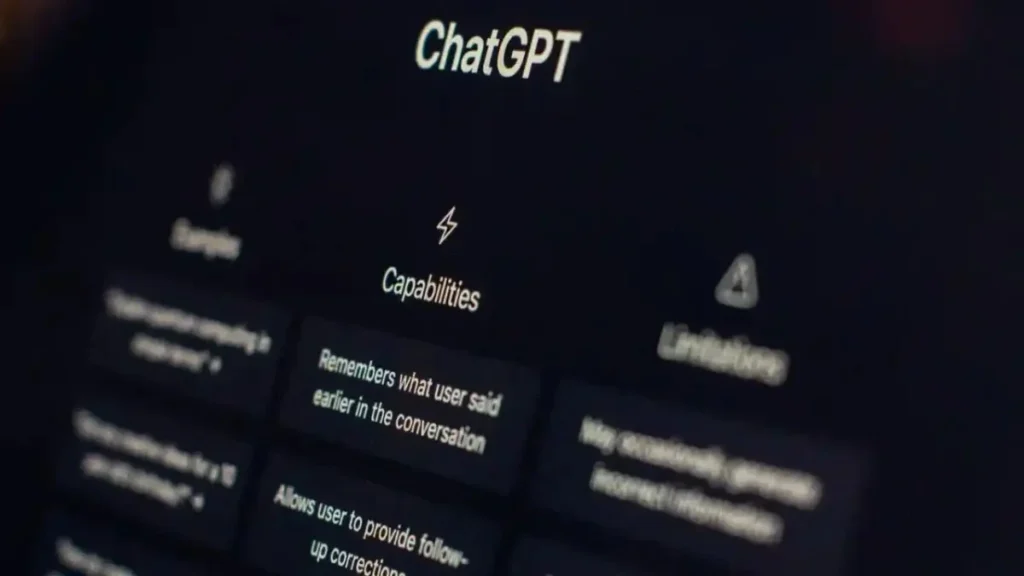
Conclusion
In 2025 and beyond, tools like ChatGPT are no longer optional add-ons — they’re becoming essential companions for students navigating India’s highly competitive academic landscape. From board exams to entrance tests like JEE, NEET, and UPSC, AI-powered study aids are reshaping how students learn, revise, and manage time. The accessibility of smartphones and affordable data has made this shift even more widespread — enabling millions of learners to turn to ChatGPT for instant explanations, revision schedules, and interactive quizzes.
However, the core principle of learning remains unchanged: an AI tool can assist, but it cannot think for you. The real advantage lies in using ChatGPT strategically and responsibly — as a study partner that simplifies complex topics, provides practice material, and strengthens conceptual clarity, without replacing the human effort of reading, reasoning, and reflecting. Students who balance AI assistance with traditional study habits will see deeper understanding and lasting academic growth.
Ultimately, the future belongs to the “smart learners” — those who blend technology with discipline, curiosity, and ethical awareness. Use the strategies outlined above, refine your prompt-writing skills, and treat ChatGPT as a mentor-in-your-pocket. If you stay consistent, self-aware, and honest in your approach, you won’t just score higher — you’ll develop critical thinking and digital skills that prepare you for success far beyond exams.
References & Sources
- Statista (2025) – AI adoption in education and India’s EdTech market growth
👉 https://www.statista.com - NASSCOM (2024) – AI in Indian Education: Market Forecasts 2024–2030
👉 https://nasscom.in/knowledge-center - KPMG India Report (2024) – Digital Learning in India: Post-COVID Transformation
👉 https://home.kpmg/in/en/home/insights.html - Economic Times (2025) – How Indian students use ChatGPT for exams and assignments
👉 https://economictimes.indiatimes.com - Times of India (2024) – ChatGPT and Indian Students: AI as Study Partner
👉 https://timesofindia.indiatimes.com - UNESCO (2024) – AI in Education: Balancing Innovation and Ethics
👉 https://www.unesco.org/en/education - McKinsey & Company (2024) – Future of Learning: How AI is Reshaping Education Globally
👉 https://www.mckinsey.com - Google Trends (2025) – Search volume data for “ChatGPT for exams”, “AI study tools”, “ChatGPT India”
👉 https://trends.google.com - World Economic Forum (2024) – AI Literacy and the Future of Work in Asia
👉 https://www.weforum.org - EdTechReview India (2025) – Case studies on AI-powered learning tools in Indian universities
👉 https://edtechreview.in - All India Council for Technical Education (AICTE) – Guidelines for Responsible Use of AI Tools in Academia
👉 https://www.aicte-india.org - ResearchGate (2024) – Academic study: “ChatGPT as a Learning Companion – Benefits and Risks for Students”
👉 https://www.researchgate.net - LinkedIn Learning Report (2024) – Skill Trends: Generative AI Literacy Among Students
👉 https://learning.linkedin.com - Quartz India (2025) – How Indian Students Are Outsmarting Exams Using ChatGPT
👉 https://qz.com/india - Hindustan Times (2024) – AI tools and cheating: UGC’s stance on ChatGPT in exams
👉 https://www.hindustantimes.com

